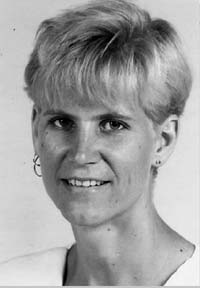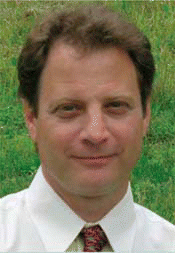Of the more than 13,000 health care providers who are members of the American Academy of Otolaryngology-Head and Neck Surgery,1 exactly three of them officially practice holistic otolaryngology as members of the American Holistic Medical Association, which itself is only about 1,000 members strong and just now entering its 30th year.2 These three physicians see many of the same ear, nose, and throat complications in their patients that their nonholistic colleagues see: tinnitus, allergies, sinusitis, and so on. All certified by the American Board of Otolaryngology, they have taken the same basic training and met the same requirements as their peers.
Explore This Issue
April 2008A major component that sets them apart, however, is that they often employ alternative therapies. For example, Benjamin F. Asher, MD, who runs a solo practice in New York, uses osteopathic manipulation for pain problems of the face, head, and ear. Robert J. Sciacca, MD, the founder of Alabama ENT Associates in Birmingham, occasionally performs acupuncture for treatment of chronic pain, ENT disorders, and tobacco addiction.
But a shared philosophy of having an open mind and of considering the whole person, not just the otolaryngological ailment, is the defining trait of these holistic otolaryngologists. The practice of holistic medicine is more of a mindset than a set of procedures, explained Jennifer H. Judkins, MD, of Upper Valley Medical Group in Lebanon, NH.
Philosophy and Practice
Conventionally trained in surgical treatment of the head and neck, Dr. Judkins said, I have, over the years, developed an understanding that most disease processes are best approached by looking at a much bigger picture. The effects of diet, mood, spirituality, family, culture… really need to be addressed when treating patient problems, particularly those that are challenging diagnostically.
Dr. Judkins has a specific interest in nutrition and its relationship with pathology. After her residency in otolaryngology, she spent several years treating ear problems in the Navajo population of Shiprock, NM. She noted the exceptionally high incidence of type 2 diabetes among the children of the community-and also the drastic change from a formerly agrarian culture to a more urbanized landscape, and the new presence of fast food. She pursued this interest more formally by attending nutrition conferences and taking online courses. But rather than abandon otolaryngology for nutrition, she instead incorporated nutrition as a form of potential therapy in her otolaryngology practice. She encourages patients with allergies and chronic sinusitis to follow an elimination diet-cutting out trans fats, vegetable oils other than olive and canola oils, and processed foods, such as white breads, rice, and pasta-to minimize inflammation. She often also recommends omega-3 supplements and five to nine daily servings of fruits and vegetables to these patients.
The aim of Robert J. Sciacca, MD, is to provide an environment where his patients feel comfortable in candidly and openly discussing their health. I pride myself on being able to talk to my patients about supplements.
Similarly, Dr. Sciacca was influenced by Native American culture: His mother was Native American, and his mother and grandmother lived on a reservation in Wisconsin, so he was exposed to nonconventional medicine at an early age. In addition, before attending medical school at the age of 30, Dr. Sciacca served in active military duty for six years with the US Army, saw combat in Vietnam, was wounded twice, and spent about eight months in a hospital. Acupuncture was part of his recovery plan-and he was so convinced of its efficacy that he became certified in acupuncture at UCLA.
He hasn’t departed completely from traditional otolaryngology-he exercises his surgical skills about two days each week. But rather than just focus on the immediate physical problem, Dr. Sciacca tries to understand external factors that could affect a patient’s health, especially a surgical outcome. I pride myself on being able to talk to my patients about supplements, he said, explaining that many patients fear derision by a physician for taking naturopathic substances. Dr. Sciacca’s aim is to provide an environment where his patients feel comfortable in candidly and openly discussing their health.
Creating a safe and welcome environment for patients is also a crucial aspect of Dr. Asher’s practice-perhaps the most crucial. He spends an hour with each new patient, and he devotes half of that time to taking a detailed history-not just related to their specific otolaryngological problem, but also concerning their digestion, stress, environment. To Dr. Asher, listening to the patient can be of more value in diagnosing and treating his or her health dilemma than a physical exam. For example, he noted that a common problem he sees is globus, the sensation of a foreign body in the throat. In a typical office, this often is misdiagnosed or disregarded as reflux, he said. And that may be true, but in at least 50 percent of the patients that I see who have that particular problem, they have some unresolved, active, ongoing grief issue. And in our society, we don’t deal with grief at all…. People don’t really recognize the [physical] impact grief has on them.
Dr. Asher views himself and other holistic physicians as mind-body-spirit doctors. As a high school student in the late 1960s, he was intrigued by meditation, and in college, he enrolled in a transcendental meditation program. He eventually began to teach meditation, which he credits as his inspiration to study medicine. I thought if I were a doctor, I could help people and use meditation to get people to reduce stress, he said.
Collaboration and Challenges
Though Drs. Judkins, Sciacca, and Asher differ in philosophy-and sometimes in practice-from their mainstream colleagues, they don’t have problems collaborating with them. Dr. Asher, for example, though surgically conservative, does refer patients to surgeons when he sees fit. Sometimes, people come in for a second opinion, and I tell them, ‘Look, you have no option here. You need to have surgery.’ At the same time, he often sees patients who are referred to him by some of the best sinus surgeons in the world, after multiple unsuccessful procedures.
Dr. Sciacca also finds that it has been easy to work other otolaryngologists, as well as other health specialists. Over the past 12 years, he and three other individuals spearheaded the construction of a suburban medical complex, which is managed by an outside entity, that now houses a family practitioner, a dentist, a dermatologist, and orthopedic surgeons. I’ve always used a team approach, he said. In his own office, he has had three dietitians working with him in the past five years.
Unfortunately, Dr. Sciacca has had to forgo that part of his practice because of the one major problem that he has identified with being a holistic physician-lack of insurance reimbursement. Though he sees the value of providing acupuncture as a service and dietitians as part of his staff, the main carrier in his state, Blue Cross, does not adequately provide for those services. Dr. Judkins added, The challenges [of holistic otolaryngology] are minimal. Reimbursement has not been an issue for me, but if I were to start billing for alternative therapies such as acupuncture, for instance, I would likely have problems.
Burgeoning Research
Emerging research on holistic medicine gives hope, however, that this field will become more mainstream-and better funded. Right now, the insurance companies won’t pay for sublingual therapy, but there are worldwide data now that show more than 10 or 100 million doses of sublingual therapy that have been given out with benefit but no single fatal reaction, explained Dr. Sciacca. Pretty soon, he added, insurance companies will have to take notice of this, as more research, especially double-blind studies, comes out. Dr. Sciacca advocates the use of sublingual therapy for allergies not only for its efficacy but also for the ease of dispensing-it is easier for parents and less painful for children to have a few drops placed under the child’s tongue than giving an allergy injection, for example.
Dr. Asher, too, noted the growing literature on holistic medicine, especially in the area of ear, nose, and throat conditions. There are ways to effect changes in the body in a more gradual way, with fewer side effects, that often work incredibly well, and using substances that have been known to have been effective for many years, like a lot of Chinese herbs, he said. He cited one combination of Chinese herbs that was studied by researchers at Weifang School of Medicine in China and Mount Sinai School of Medicine in New York City that was as effective as prednisone for treating asthma.3 Specifically in this study, total IgE levels were reduced, and the inflammatory mediators in the TH2 direction were reduced. Dr. Asher also mentioned that Coenzyme Q10 (CoQ10), a nutritional supplement that is now being used for migraine prevention, has been shown to be effective for tinnitus in some patients who have low CoQ10 levels.4
Although circumstance might have initially led these three otolaryngologists to discover a holistic philosophy, today they all actively continue to educate themselves. They all attend meetings and read current literature. Dr. Sciacca participates in diverse medical organizations, such as the American Academy of Environmental Medicine and the Association of American Indian Physicians, and Dr. Judkins finds the online courses of the University of Arizona particularly useful. Dr. Asher keeps in mind what he learned while in residency at the University of Iowa: Be observers of the world, and see what works and what doesn’t.
References
- www.entnet.org
[Context Link] - www.holisticmedicine.org
[Context Link] - Wen MC, Wei CH, Hu ZQ, et al. Efficacy and tolerability of anti-asthma herbal medicine intervention in adult patients with moderate-severe allergic asthma. J Allergy Clin Immunol 2005;116:517-24.
[Context Link] - Khan M, Gross J, Haupt H, et al. A pilot clinical trial of the effects of coenzyme Q10 on chronic tinnitus aurium. Otolaryngol Head Neck Surg 2007;136:72-7.
[Context Link]
©2008 The Triological Society


Leave a Reply